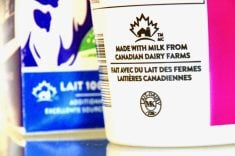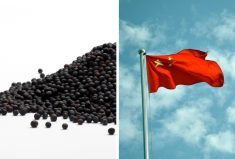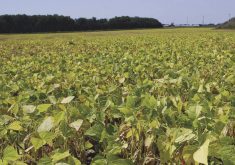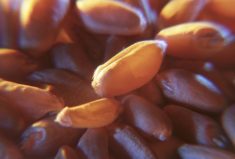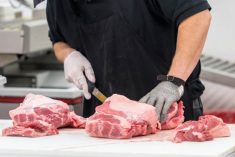The supply-managed sector learned the Comprehensive and Progressive Trans-Pacific Partnership (CPTPP), as the updated TPP trade deal is now known, would be proceeding at the same time the rest of the country did.
That’s despite regular meetings with cabinet members and government officials to express concerns about provisions in it.
The sector is now awaiting the opportunity to explain to Agriculture Minister Lawrence MacAulay how the increased market access the deal and earlier trade agreements provides for dairy and poultry products means that up to 10 per cent of the Canadian market has been turned over to foreign products.
Read Also

Mazergroup’s Bob Mazer dies
Mazergroup’s Bob Mazer, who helped grow his family’s company into a string of farm equipment dealerships and the main dealer for New Holland machinery in Saskatchewan and Manitoba, died July 6 from cancer.
The dairy and poultry marketing boards also want to see what the government will act on an October 2015 commitment to support the sector if the previous TPP deal, which included the United States, had been agreed to.
They’re not opposed to Canada joining the CPTPP because of the potential gains it has for the rest of the agri-food sector. They just want action to minimize the harm they could face, member organizations say.
They also worry about what Canada might concede to gain a new NAFTA agreement. The U.S. has called for the phase-out of supply management.
“It is more important than ever that the government start closing the loopholes and implementing the programs that were previously promised when the TPP was first concluded,” said Benoit Fontaine, chair of Chicken Farmers of Canada.
While some sectors may see the recent CPTPP developments as a positive, it is a sombre day for the 221,000 Canadians who depend on the dairy sector for their livelihood, said Pierre Lampron, president of Dairy Farmers of Canada.
There was little incentive for Canada to give away the market access concessions that were agreed to when the United States was still a part of the deal, said Roger Peliserro, chair of Egg Farmers of Canada.
“We believe this deal will harm the turkey sector,” said Mark Davies, chair of Turkey Farmers of Canada. “There was no need to maintain the market access levels of the original TPP, which were made in response to demands by the U.S., which is no longer part of the agreement.”
International Trade Minister Francois-Philippe Champagne, who met marketing board representatives at WTO meetings just before the CPTPP agreement was announced, says the CPTPP “is the right deal.”
Neither he nor other cabinet ministers have addressed the concerns of the marketing boards.
“Right now our focus is on the significant outcomes and opportunities that this agreement will bring to Canada, and to the agricultural sector,” he said. “It will give the Canadian agricultural industry preferential access to all CPTPP countries and will provide new market access opportunities for a wide range of Canadian products, including meat, grains, pulses, maple syrup, wines and spirits, seafood and agri-food.”
Background information provided by Global Affairs Canada says that in return, Canada will provide permanent CPTPP-wide tariff-rate quotas covering dairy, poultry and egg products. This access will be gradually phased in over a five-year period, followed by a smaller growth of the quota volume until year 13. “This represents a small portion of Canada’s current annual production. Imports beyond these volumes will be subject to Canada’s usual most-favoured-nation (MFN) tariffs of up to 313.5 per cent,” the document reads.
Fontaine said Canada should have taken the increased access off the table for the CPTPP “since none of the other partners have provided anything in exchange for this increased access to the Canadian chicken market.” He said the government needs to deliver the support programs and implement the anti-circumvention measures relating to chicken, including mislabelled broiler chicken imported as spent fowl, the addition of sauce to circumvent import quotas and excluding supply-managed products from DRP (duties relief program) to stop the loopholes announced at the conclusion of the original agreement.
“Together, the circumventions have resulted in annual losses of more than $139 million in farm cash receipts, 4,456 jobs, $335.3 million to the GDP and $11.9 million in tax revenues,” he said.
“Increased access to the Canadian chicken market, especially without gaining something in return, is going to impact jobs from coast to coast. These programs will help lessen the damage being done by the giving away of our market access.”
Dairy Farmers’ Lampron said the sector is getting mixed messages from Ottawa.
“On the one hand, the Canadian government has repeatedly stated that it wants a vibrant, strong, and growing dairy sector that creates jobs and fosters investments; on the other hand, it continues to carve out pieces of our domestic dairy market, first through CETA, and now through the CPTPP,” he said. “The government must understand that in continuing to make these concessions, it is putting the Canadian dairy sector in jeopardy.”
Pelissero noted egg producers make a sizable contribution to Canada’s food system, help keep rural communities vibrant and feed urban consumers’ appetite for locally produced food.
“The concessions under the CPTPP impact the livelihood of Canada’s more than 1,000 egg farm families,” he said.
Egg Farmers of Canada wants the government to expedite work on mitigation measures, Pelissero said.
Davies said the CPTPP deal “will increase import access to the Canadian turkey market by 71 per cent, representing $270 million in lost farm cash receipts over the next 19 years, and a farm output loss of at least 4.5 per cent.
“Farmers’ livelihoods will be impacted by corresponding farm income losses, without even taking into account downward pressure on farm prices or the market growth Canadian farmers will lose to exporters,” he said. “Total economic activity losses in the order of $111 million per year will occur throughout the value chain.”








